opens in a new window
Written by Catherynne M. Valente
Over the last many years, I have darted back and forth between children’s literature and adult fiction like a banged-up cargo ship between space-ports. It’s a strange balancing act: remembering when I am and am not allowed to swear, to use five-syllable words and sub-clauses, to depict sex, murder, despair, or a solar system populated with worlds nothing like the ones New Horizons sees.
Now, with Radiance, my first adult novel in four years about to be unleashed upon the world, I look at that funny little hardback beast, stuffed full of a Venus with breathable air and scarlet swamps, and feel a familiar tingle of trepidation: am I allowed to do that?
There’s been a strong trend of late toward more realistic science fiction. No faster than light travel, no bug-eyed monsters, no getting around the colossal difficulties of human-space relations that we have had to face over the last 70 years of scientific advancement. Where once the horror in SF might have been a menace from Mars, now it is more often the scarcity of water and air, and the nearness of an unforgiving vacuum. And this is good and necessary work—fiction gives us a place to explore how things which have not yet happened will change our psychologies, so that we will not be caught unaware. But that is not the only use of fiction, or even of science fiction.
I didn’t want to write a book about the nine (yes, I said nine!) worlds of our solar system as I know them to be now. Perhaps it’s the children’s writer in me talking: as a child I dreamed of sailing on Venus and being a cowboy on Mars, of running around on the plains of Saturn looking up at the rings. Pulp science fiction gave us adventures that we know now could never happen—and it broke my heart a little when I realized that, very probably, no one would ever get to be a cowboy on Mars.
It’s a kind of grim coming of age. As a kid you can build a fort of Zelazny paperbacks and live in it quite happily. But eventually you grow up, and accept the hardness of hard SF.
But when it came time to write my first Real Big Girl Science Fiction Novel, I wanted to write about those dream worlds. I wanted to write with the freedom of Silver Age SF, without worrying about whether it was grittily realistic. After all, I didn’t get into writing speculative fiction to write about the real world. But I couldn’t help worrying. Because I am a fantasy writer—wouldn’t people take me less seriously if I wrote about floating cities on Neptune? If I didn’t fully explain the drive mechanisms on my beautiful art deco ships? If I didn’t grow up and accept the reality of eight empty worlds hostile to life and the vast spaces between them? If I let the planets I drew pictures of as a child come alive? Am I allowed to do that? Science fiction gets a larger share of literary respect than fantasy because of its utility—it isn’t about the real, honest world now, but it is about the real honest world as it might be soon, and therefore the kinds of people who are very concerned with policing the imagination will, grudgingly, allow science fiction a seat at the literary table with the big kids (albeit one with a missing leg and gum stuck underneath). The more grounded in reality, the better. What could be the utility of going backward, into that pulp paradise, to find my Venus among the many that were once thought possible?
The simplest answer is: I just really, really wanted to. I longed to. I had a solar system in my heart screaming to get out. A really big dream—and that’s the utility of it. Unrealistic fiction, even and especially science fiction, allows us to dream big. To boldly go. To not have to have The Talk where you find out that Santa Claus doesn’t exist and there are no purple space-buffalo on Pluto. Or at least not to believe it completely. Like fairy tales, our dreams of our nearest neighbors are archetypal, bone-deep. They say everything about us. Before you venture out, what you hope to find down the lane is as true as what’s really there. And who knows—one day, these fantastical planets may be real worlds. Terraforming may give us a watery Venus, a Saturn where a child can stand, even cowboys on Mars. Science is not an endpoint, and even the most realistic of hard SF can’t say anything about the physics we might discover in a hundred years. And beside the steely SF of Facing Reality, the SF of Something Impossible ought still to have a place.
Radiance dwells in an alternate universe where such things, such planets, such physics, such cowboys, are already alive and bustling and messily complicated. It’s the place I always wanted to live in.
And I’m finally allowed to go there.
Pre-order Radiance today:
Amazon | Barnes & Noble | Books-a-Million | iBooks | Indiebound | Powell’s
Follow Catherynne M. Valente on Twitter at @catvalente and on her website.

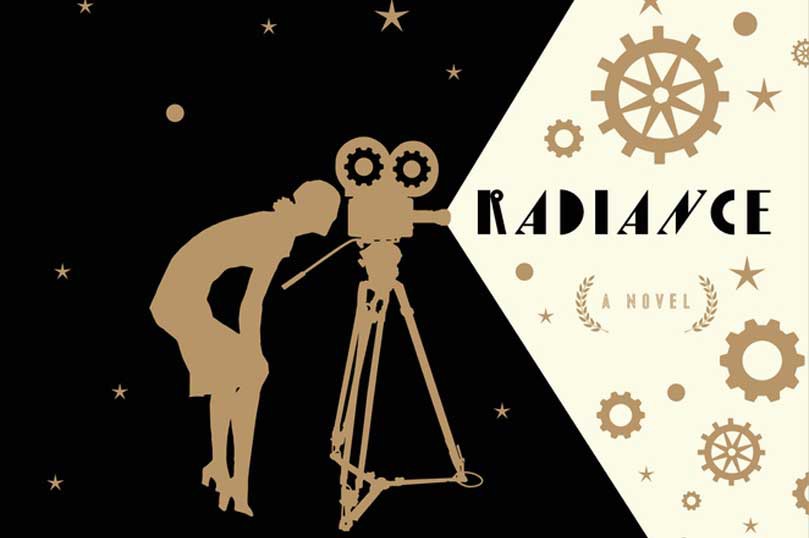

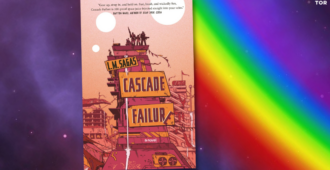
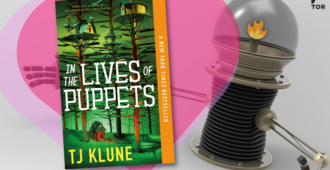
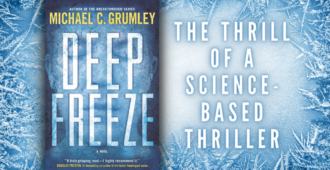
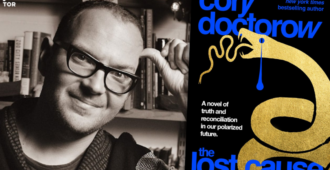
I’ve no problem with a universe with different physical processes and nature. The late Jay Lake’s Mainspring novels, for example, is a literally clockpunk powered universe, and its wonderful.
Who is to say there aren’t alternate realities where the universe has taken a different turn. A couple of centuries ago a cell phone, lighter or flashlight would be considered big magic. Even now most people have heard the old saying about how a butterfly flapping its wings in one place can effect the weather on another continent. Who can say that someplace in the universe there isn’t a similar solar system to ours where life flourishes on multiple planets. Fantasy dreams of things we’d like to see while science fiction dreams of things that could be one day. It’s very possible that someday science will be advanced enough to make fantasy worlds exist or find that they already do exist somewhere. Science fiction took us underwater, to the moon & planets. While the reality has been different than science fiction dreamed of, it’s still amazing how stories can inspire us.
I think that’s great! I love those worlds and want to see more explorations in worlds like that. In my reader’s universe there’s room for disc worlds, ring worlds, realistic hard SF worlds and more.
I would write hard SF if I could. I just don’t have the knowledge base for it.